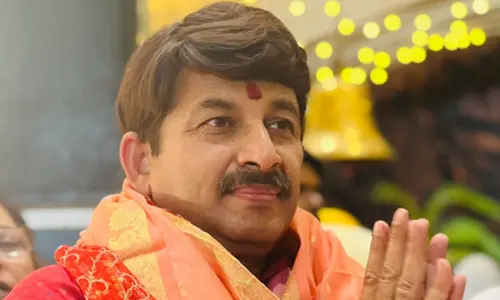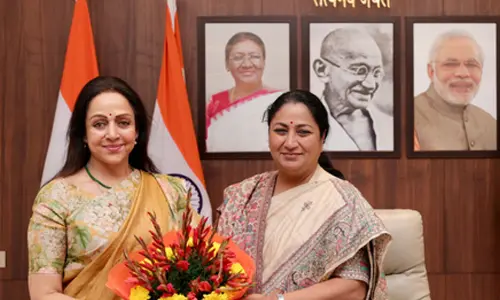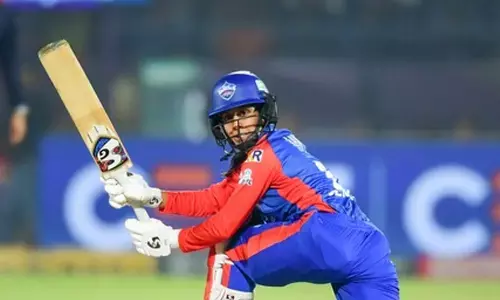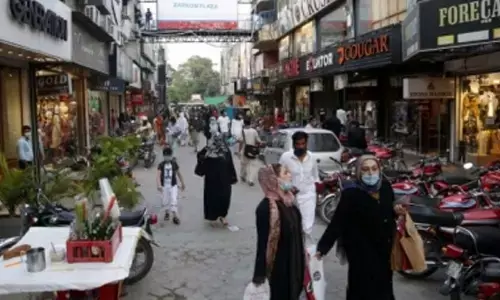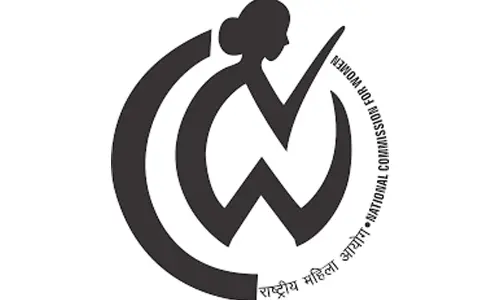Why fear Rashtriya Swayamsevak Sangh?
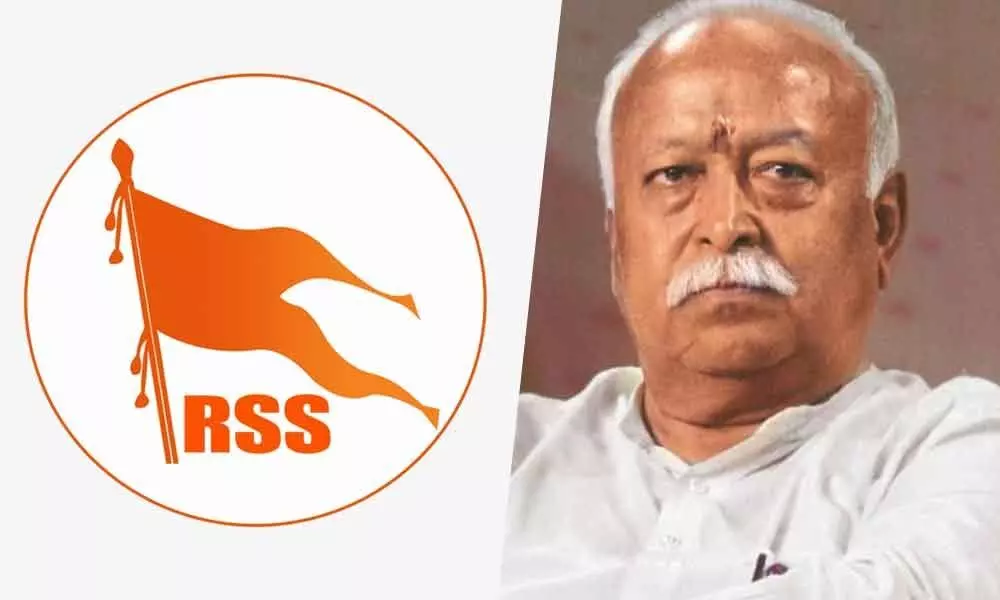
Some people live in a world that is quite at odds with nature. They fear simplicity, suspect selflessness and abhor nationalism. This article is meant to show a mirror to them.
Some people live in a world that is quite at odds with nature. They fear simplicity, suspect selflessness and abhor nationalism. This article is meant to show a mirror to them.
It is believed that fear makes you irrational. The claim that Rashtriya Swayamsevak Sangh (RSS) chief Dr Mohan Bhagwat has released a new Constitution of India based on Hindutva is a manifestation of this irrational fear - something that lay hidden for decades under a suave exterior, is seeping out through cracks in the carefully crafted glossy façade.
Rahul Gandhi's efforts to tarnish the image of RSS just before 2014 general elections is a good example of this fear. In Bhiwandi, Maharashtra on march 6, 2014 where he said in a public rally 'RSS ke logon ne Mahatma Gandhiko goli mari aur Sardar Patel ne likha hai (RSS people shot Mahatma Gandhi and Sardar Patel has written this) years after RSS was given a clean chit in the matter. He used the same tactic in 2019 election campaign too with sadly no results whatsoever.
Fear is a strange thing. It can cripple your body yet can make your mind race - race backwards into the uncomfortable past where you are forced to acknowledge the truth.
Rahul Gandhi and his fellow men on their journey into the not so alluring past had to take into cognizance the fact that Rajiv Gandhi had close association with some senior RSS leaders like Bhaurao Deoras and was not actually averse to Ram Mandir construction!
Rajiv Gandhi on the day of his assassination in May 1991, at a press conference in Meenambakkam Airport in Madras ( Chennai) apparently declared that Ram Temple would be built with the consensus of all and when asked by a PTI correspondent on where the temple would be built , he clarified, "In Ayodhya of course, where else?"
Media could not carry this piece of news as the unfortunate incident of his assassination had to be given importance. The PTI correspondent, Rangaraj who asked Rajiv Gandhi that question documented everything in great detail on the website 'The News Minute'.
Rahul Gandhi who maintained stony silence over Ram Mandir has to not only live with this uncomfortable truth but in addition has to digest the fact that his grand mother Indira Gandhi at one point supported 'soft Hindutva'.
Indira Gandhi, according to some senior Congress leaders, in her last term between 1980-1984 was known to have supported RSS stance, especially when en masse conversion of about 1000 Dalit villagers from Hinduism to Islam in 1981 at Meenakshipuram caused her extreme unhappiness.
It was Jawaharlal Nehru who openly declared that he would destroy RSS. He made it quite clear in Amritsar. In his speech on 29th January 1948, he thundered that he would see that RSS is totally uprooted from the face of India. It is public knowledge that he ensured RSS be dubbed as 'communal' and 'fascist'.
The organisation was hounded systematically and banned many times. But over the years all the allegations against RSS like its non-participation in freedom movement, Gandhiji's assassination were all proved wrong with facts or squashed by courts. That Nehru could not make a dent to the growing popularity of RSS has become a pain point for the Congress.
Today no political party or social organisation can match RSS in strength or character. What started with a handful of volunteers in 1925, today it has 1.3 lakh Shakhas (branches) across the nation with 6 million members.
This mammoth organisation has the largest number of nationalists who seek nothing in return for their absolute commitment. They lead extremely simple lives, and none can tempt them with inducements. They are so frugal that current generation given to extreme indulgence cannot find ways to deter, distract, detract them from their avowed goal.
Cocktail parties cannot attract this cadre nor inducements of any kind. How can you tempt a sanyasi who attaches no value to the material? How can you release anyone from willful confinement? What binds them together is this fierce commitment to nation building, loyalty to the motherland and in their own words 'Hindutva'.
According to them, 'Hindu unity' is nothing but uniting all religions with Indic roots. Such lofty intent can instill fear in those who are against the nation.
The chief of RSS, Mohan Bhagwat, tirelessly repeats that any person, regardless of the region, language, method of prayer is son of Bharat and is a Hindu. According to him, all the 130 crore Indians are but Hindus! Interestingly the RSS veteran, Golwalkar in his book "Bunch of Thoughts" has also written that "there are some who imagine that the concept of Hindu nation is a challenge to the very existence of Muslims and Christians as co-citizens and they will be thrown out and exterminated.
Nothing could be more absurd or detrimental to our national sentiment. It is an insult to our great and all-embracing cultural heritage."
This sturdy alignment between leaders from the past and the current can be quite unnerving to those who resent the organisation.
Today's youth and Intellectuals are no longer interested in Romila Thapar's and Irfan Habib's account of Indian History. They are rejecting their false narrative. Books on demystifying RSS written by Sangh leaders like Ratan Sharda are much in demand.
Mohan Bhagwat's speeches on Indian subcontinent and the idea of 'Greater India' has caught the imagination of the youth and rightfully so – they are actively digging into world history and seeking literature from the right sources.
As with changing times under Mohan Bhagwat's leadership, RSS is actively engaging with the external world. A thee-day dialogue with 3,000 dignitaries from various walks of life was held at Vigyan Bhawan in 2018 - A packed hall with as many as 300 questions posed to the RSS chief is a testimony to the interest it generated.
As a part of this outreach, Mohan Bhagwat met diplomats of 50 countries in New Delhi to explain about RSS. Over the years he has been meeting bureaucrats, businessmen in Bombay Stock Exchange. Not wanting to leave any stakeholder behind he met many living in slums across the nation.
The media shy, publicity averse RSS has always been recognised for its yeoman service.
The selfless work of RSS volunteers during natural and manmade disasters is unparalleled.
Any allegations against it pale in front of the humongous body of work done over the years.
In 2018 , if senior Congress leaders were dismayed over former President of India, a veteran Congress leader Pranab Mukherjee's decision to attend the annual RSS meeting as chief guest, his speech highlighting India's ancient glory, Hindu kings their valour, the Muslim invasions and British colonisation had them really worried.
Perhaps more so, when he publicly acknowledged that RSS stands by the Constitution of India. When Pranab Mukherjee visited the residence of RSS founder Keshav Baliram Hedgewar in Nagpur, his entry in the visitors book , "Today I come to pay my respectful homage to a great son of Mother India KB Hedgewarji" not only acknowledged the contribution of RSS founder but in one stroke vanquished all allegations made by the Congress against RSS!
Today, RSS is still the same. It remains simple with shakhas (assemblies) where members called swayamsevaks (volunteers) meet - salute the Bhagwa Jhanda (saffron flag) sing patriotic songs, do physical exercise, discuss issues of national interest and most importantly plunge into selfless service.
But for some who do not mean well for the country, this cadre's simplicity is alarming . Their spirit is unsettling. Their commitment to the country is incomprehensible! In fact, the very word RSS can instill fear in those who do not resonate to the spirit of 'Bharat Mata Ki Jai' or fail to see the overarching vision of this gigantic nationalistic force called Sangh!
(The writer is BJP leader, president, Futuristic Cities, global thought leader, advisor on smart cities, governance & policy)








